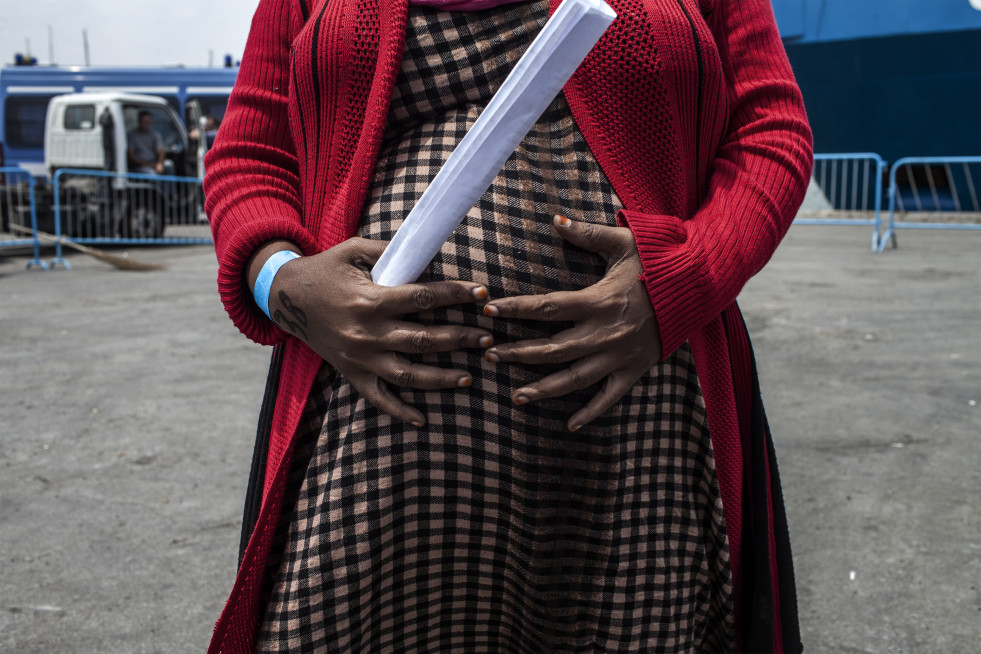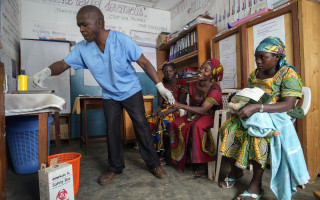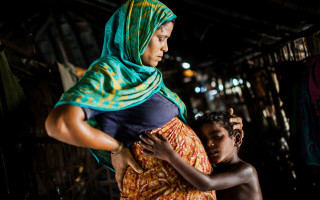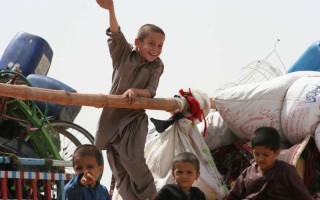
Jamila resting on the docks at Catania’s port, Sicily, having been rescued at sea by the Swedish coast guard. She is seven months pregnant. Jamila doesn’t know where her baby will be born. © UNHCR / Sebastian Rich
April 18, 10:40 a.m. in the Siripi Health Centre, Rhino Camp Refugee Settlement near Arua, Uganda:
At 6.15 a.m., 20-year-old Charity Fikeira gave birth to her first child—a tiny but healthy baby girl. Yesterday, as her contractions increased, Charity walked nearly two and a half kilometres from her hut to the health centre, accompanied by her mother, her sister and her sister’s two young children. Charity has attended the clinic here several times during her pregnancy, receiving standard health checks, preventative malaria medication and a supplementary food ration for pregnant and nursing mothers. She has been encouraged to deliver at the centre where there is a basic but clean delivery table, sterilized equipment, experienced midwives and, at least some of the time, an ambulance on standby.
Charity is now resting in the small six-bed ward, her baby daughter beside her. By early afternoon, Charity and her family are ready to go home. She has received her UNHCR Mother and Baby packages containing two sets of baby clothes, diapers, towels, sanitary items, talc and soap. The baby is wrapped tightly in a bright new swaddling cloth. “She doesn’t have a name yet,” the nurse explains. “Here it is the father who names the babies. That will happen when they go home.”



